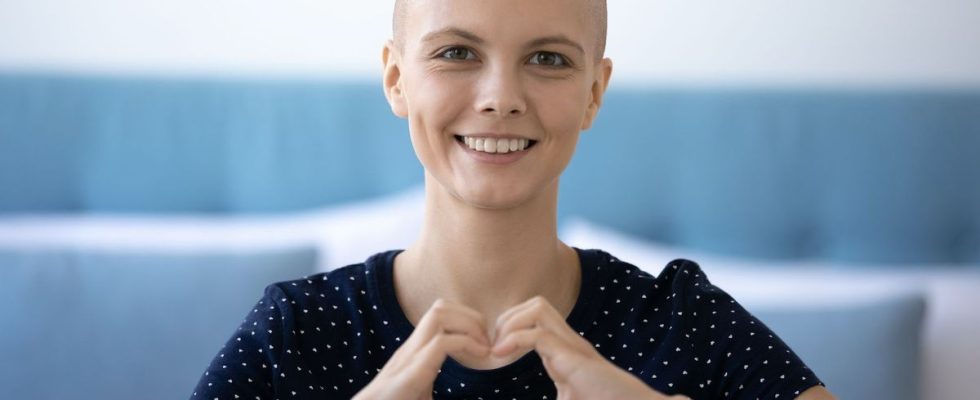Published on
Updated
Reading 3 min.
While progress makes it possible to cure more and more cases, medical speech is often hesitant to speak of cure for fear of raising false hopes. How can we maintain hope despite the uncertainty of illness? What are patients’ expectations? For the first time, a reflection committee integrating doctors and patients addresses the question of hope in the way of approaching cancer.
Cancer, a disease with which we live longer and longer
In 2050, the number of new cases of cancer will have increased by 77% compared to 2022 worldwide according to the World Health Organization. At the same time, we will be able to cure more cases or live better “with it”, thanks to advances in medicine. “We transformed a constantly fatal disease into a disease that can become chronic.” declares Professor Pascal Hammel, digestive oncologist at the Paul Brousse Villejuif Hospital.
Good news, but who “generates problems news, with a feeling of ‘in-between’ made up of uncertainties about the evolution future” confirms Professor Benoit You, medical oncologist.
It is in this new context that the Astrazeneca laboratory assessed the importance of hope in a patient’s journey via a national survey and the establishment of a reflection committee.
Hope helps to better accept the illness for 9 out of 10 patients
According to a vast national survey, conducted by the Harris Interactive Institute for Astrazeneca, the notion of hope is far from being superfluous, when the outcome is uncertain, whether on the patient or caregiver side.
- Thus, caregivers are fully aware that talking about it helps patients accept the illness, for more than 91% of them;
- 90% of patients believe that hearing the healthcare team speak “hope of recovery” or “living with cancer” helps with acceptance of the disease;
- The more discussions with the healthcare team give the patient hope at the time of diagnosis, the more it helps the patient to better accept their illness: 92% of those who had hope at diagnosis answered yes, “hear talking about hope of curing/living with cancer” helps people accept the illness versus 77% for whom the discussions did not give hope;
- However, there are obstacles among health professionals in discussing the chances of recovery. 75% of caregivers say they remain cautious as treatment progresses for fear of giving false hope.
Giving hope, a real skill to work on in the patient-caregiver bond
But if hope remains a necessary notion to transmit, it is not a question of embellishing everything to the point of betraying reality. The words used by healthcare teams, from the moment the illness is announced, are very important. “When we are told we have cancer, […] at that moment, the words that are going to be said are absolutely foundational to “how we are going to enter into a care pathway”. confirmed Laure Guéroult-Accolas, Founder and General Director of the association Network Patients during this committee.
During the treatment phase, patients primarily expect the healthcare team to provide:
- Clear explanations (42%);
- Precise information on treatments (38%);
- And that it inspires confidence in them (38%)
Giving hope will then involve a more human posture and a non-verbal communication adapted: posture, listening, choice of moment… It is essential to put yourself in the world of the person you are going to welcome. “In a professional life, there are moments that change. During this National Meeting, we touched a corner of our humanity […] The oncologist that I am and that we are must move away from this definition which is that of the disappearance of the disease, because the objective of cure, which can also be that of living well, is achievable, including under treatment.specified Professor Benoit You.
This new skill will need to be further developed in the future. During this meeting, caregivers discussed the importance of continuing reflections on their practices and continuing to develop their practice by launching specific training projects in communication and medical psychology, particularly for the youngest and those who are wish. France could take inspiration from Belgium, where medical communication courses for patients already represent 30 hours of training…
